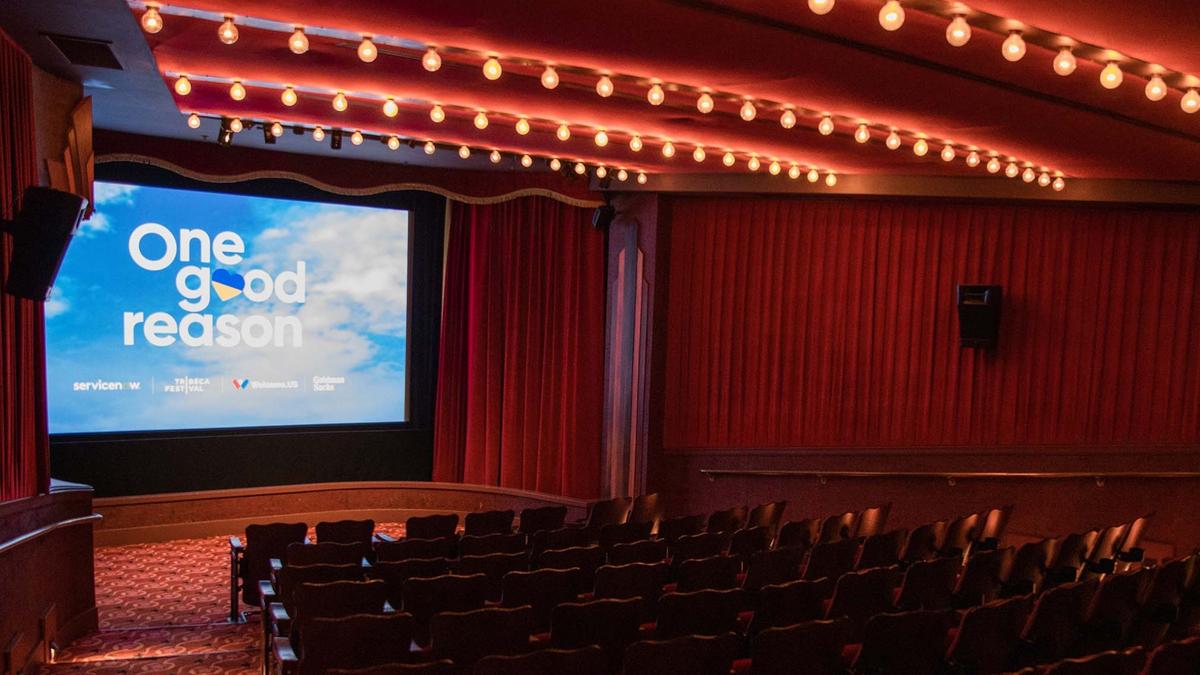
Stories of Welcome
Tribeca film features family’s journey from Ukraine to the U.S. using Welcome Connect platform
August 09, 2023
One Good Reason, a 25-minute documentary film, chronicles the raw and vulnerable journey of the Hnatiuk family as they leave Lviv, Ukraine, and begin a new life in Unity, Wisc. Their sponsors Bryce and Maxine "Max" Luchterhand help them find connection and community in their small rural town.
Since the film debuted in June 2023 at the Tribeca Film Festival, there have been many changes in the lives of the Hnatiuks and Luchterhands: Olesia and Mykola Hnatiuk are both working and their children Roman and Dmytro have adjusted to school in the United States. Although the Luchterhands are a big part of their lives, the Hnatiuk family has grown more independent and have made connections and friendships throughout their new community in Unity.
You met the Hnatiuks a year ago, what is your relationship like with them now?
Max: They have just become wonderful neighbors. We live in a rural area on a farm. There are two houses here. So, they are our neighbors on this farm. And, we were hesitant to rent out this house that we had sitting empty because we didn't want strangers driving through our yard, but it has just been great having them. It's the farm house where Bryce grew up actually. So that's an important house to the entire family and everybody—his sisters and brother and our children—are all happy that they're there.
Bryce: They've actually been almost absorbed into our family in that, they went along on our family vacation. They were here for Thanksgiving. We shared Christmas dinner with them twice.
How has life changed since you (the Hnatiuks) first arrived in Wisconsin in January 2023?
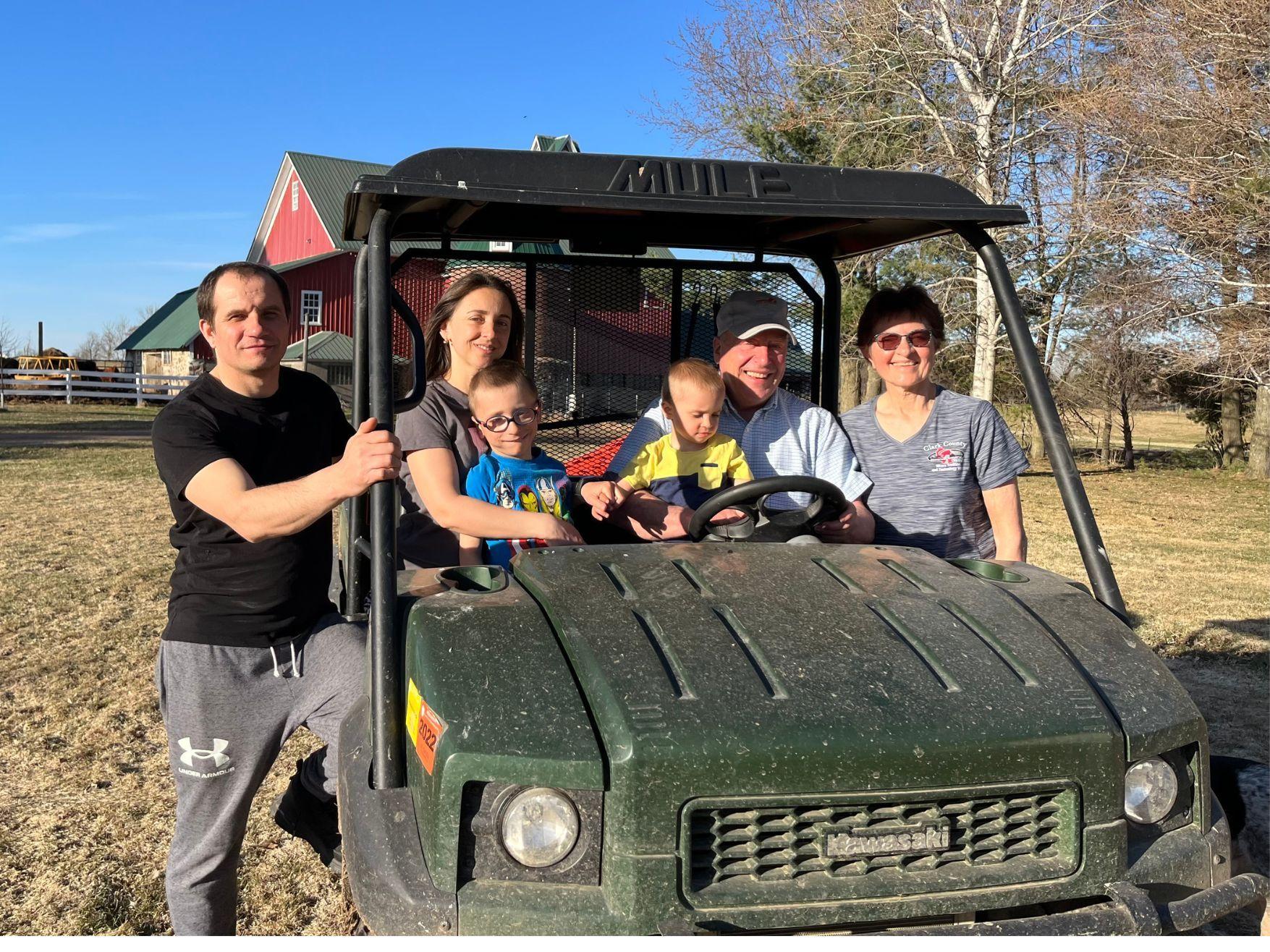
Olesia: Mykola and I are both working, the kids (Roman and Dmytro) are occupied in school and kindergarten, which helps with their English. Now we’re both familiar with the region. We know where to go when we need to get something we need. We recently found a store where you can buy ingredients to make Ukrainian food. It’s very important to find food that we used to have at home in Ukraine. Even though we live in a state that produces a lot of milk products, it’s very limited, and we’re used to fermented milk products.
We’re also more independent and have made our own connections outside of Max and Bryce. We’re meeting more people at work and elsewhere. We also met another Ukrainian couple who lives about 20 miles away. We met up for coffee, and we’re getting to know each other better.
Mykola: I’m working as a mechanic at the corporation. While I was hoping to learn more English at work, I’m mostly learning Spanish because there are so many Spanish speakers there.
Olesia: I started working as a teacher’s assistant and have furthered my education. I received certificates here in the U.S. to work as a teacher’s assistant. Just recently, I also enrolled in college to be a nursing assistant.
Now removed from the horrors of war, Roman and Dmytro play safely in their new home in Wisconsin, enjoying toys, tree houses, and farm life.
Max and Bryce, what have been some of the highlights of your sponsorship experience? What aspects of the Hnatiuk family’s transition to life in your community have been especially inspiring for you to witness?
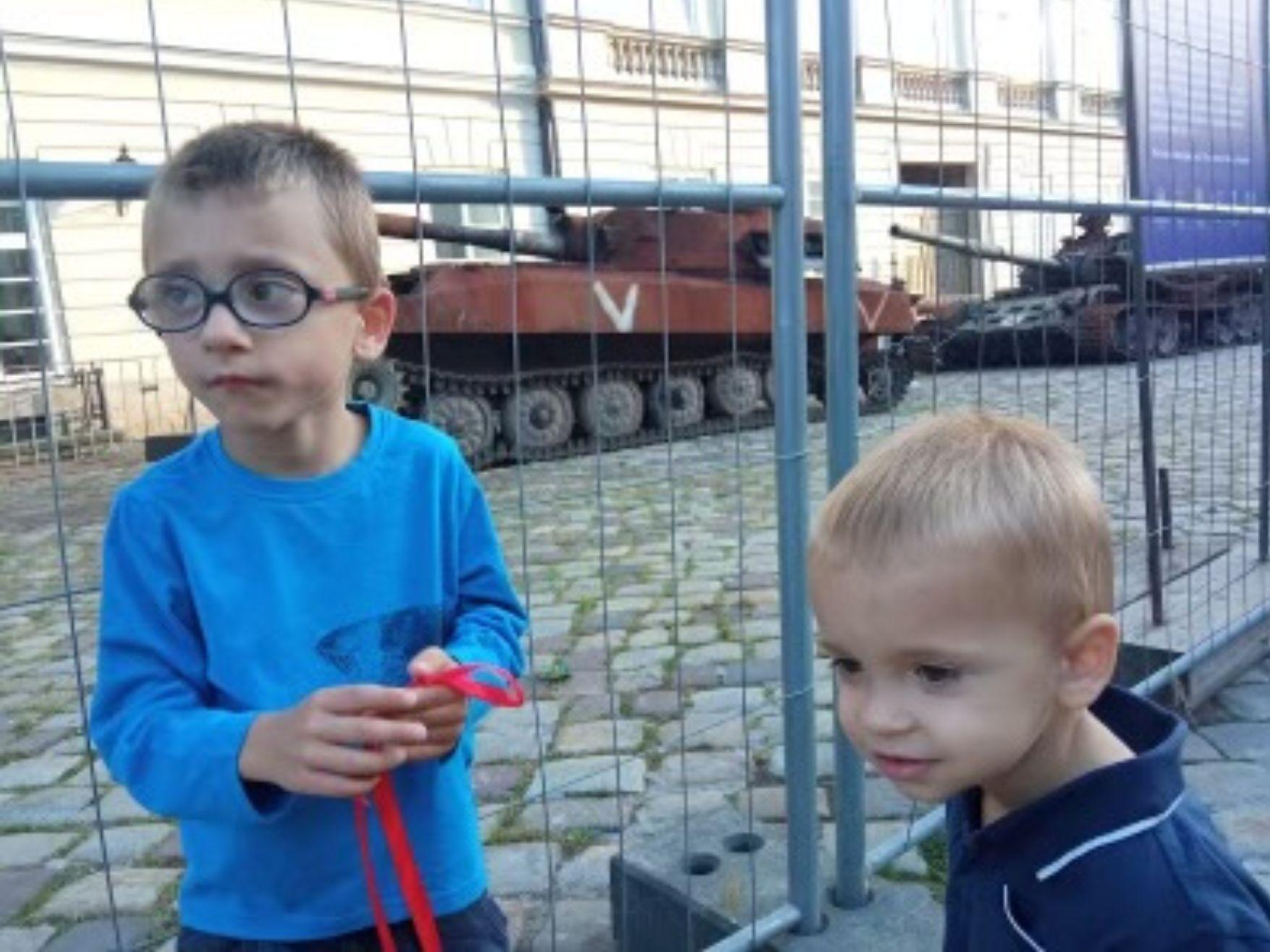
Bryce: I think so many small things that happen on a day-to-day basis, I find pretty inspiring myself. I know the summer, I remember watching those boys playing out in the yard. And I was thinking to myself of how the tremendous difference between watching them race across a green lawn, totally safe, versus the first picture we saw of them playing in front of a couple of armored tanks.
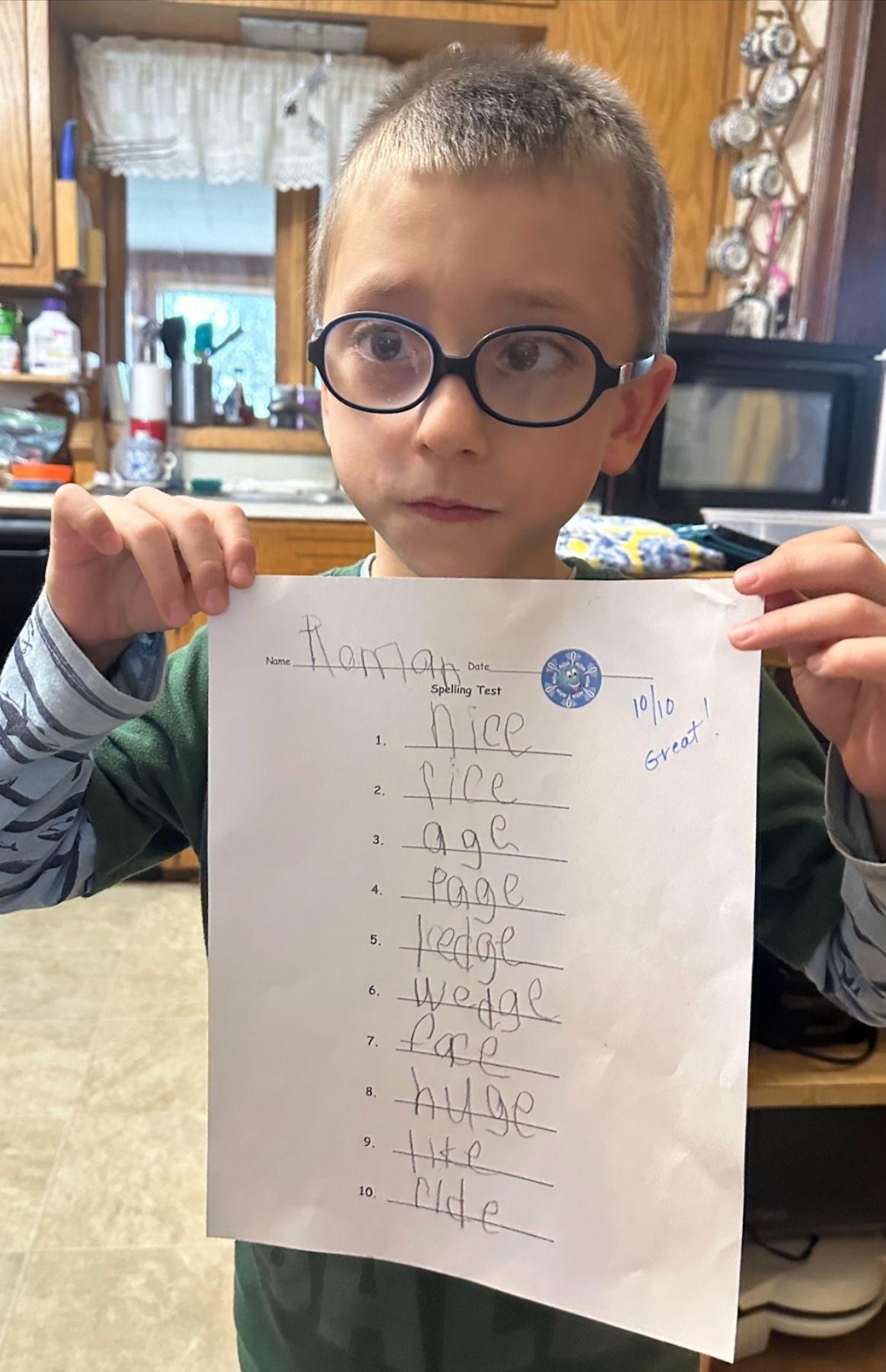
The documentary shows Roman just crying and just having a terrible time going to school. And now that's not the case. He actually has a friend or two in school, and he is very proud of his achievements. They have spelling tests every week. And he comes home with a 10 out of 10. And the first thing he wants to do is show it to Max and show it to me.
Max: And then he wants me to take a picture of it and show him the picture of him holding it. Yeah, it's so cute.
Bryce: You just see this progression of confidence and independence and a little bit of normalcy, coming into their lives where a year ago that wasn't the case.
Max: And the boys could not speak a word of English when they came. They were 6 and 3. Olesia and Mykola could speak some English, but now we also talked about how the boy's English has improved so much over the year. And they are always talking to us about something.
How are Roman and Dmytro doing in school? Has Roman learned English and adjusted to attending an American school? Does he still want to go back to Ukraine?
Olesia: Roman still wants to go back to Ukraine, but he is much better. He’s started to speak in English with Bryce and Max a lot. He has stopped crying, so he’s more calm and he has the chance to study, since he’s not so stressed. Dmytro is mixing English and Ukrainian together.
How are Olesia’s parents doing in Ukraine?
Olesia: We are talking with my parents regularly. Sometimes, it's worse in Ukraine, sometimes it's better, but it's still not safe. And it's still war over there, and all of the time missiles and drone attacks. And It's sad. The saddest part is that you see Ukraine mentioned less and less in the media, like nothing is happening, as if everything got better—but it’s the same, sometimes worse.
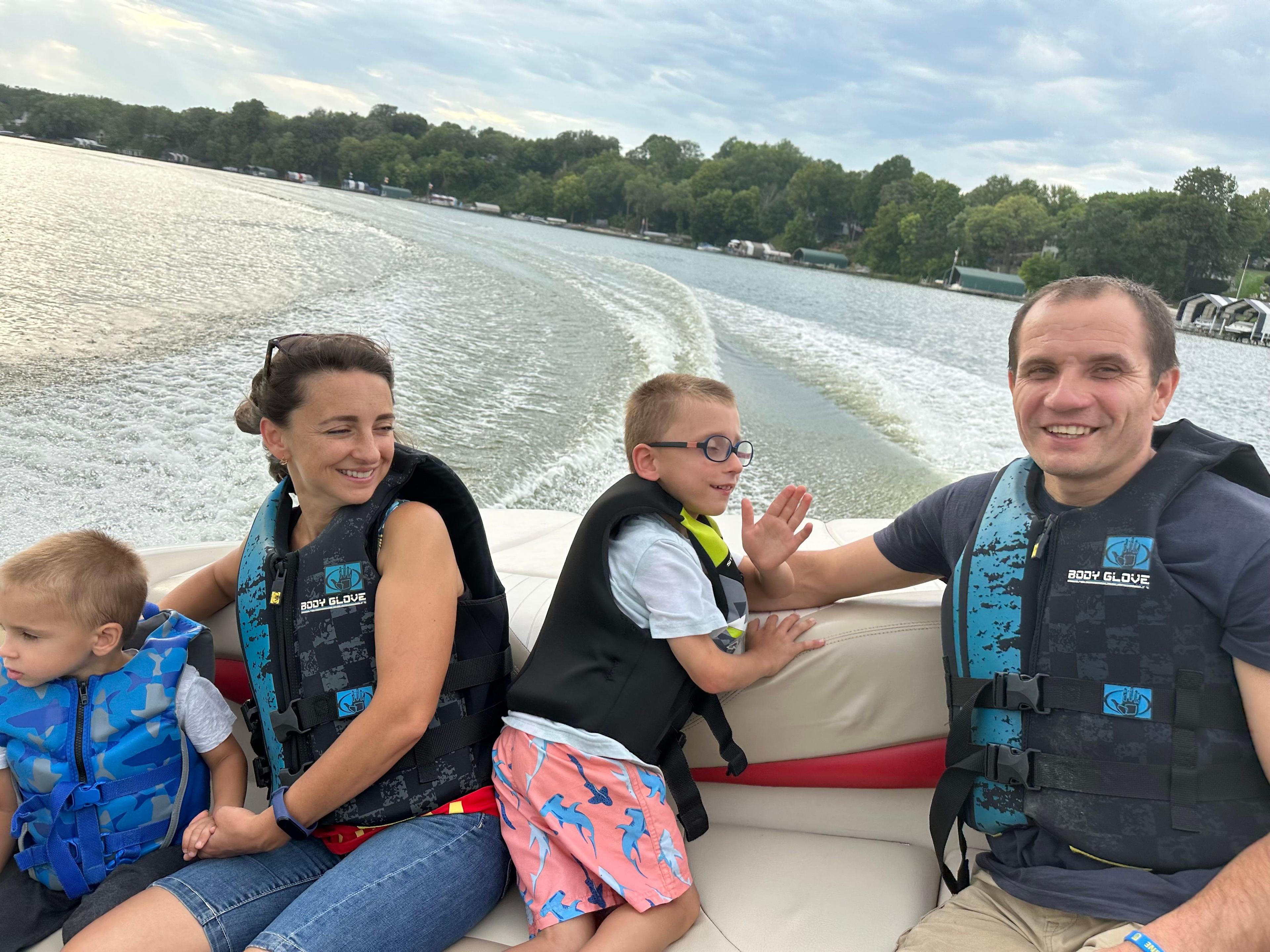
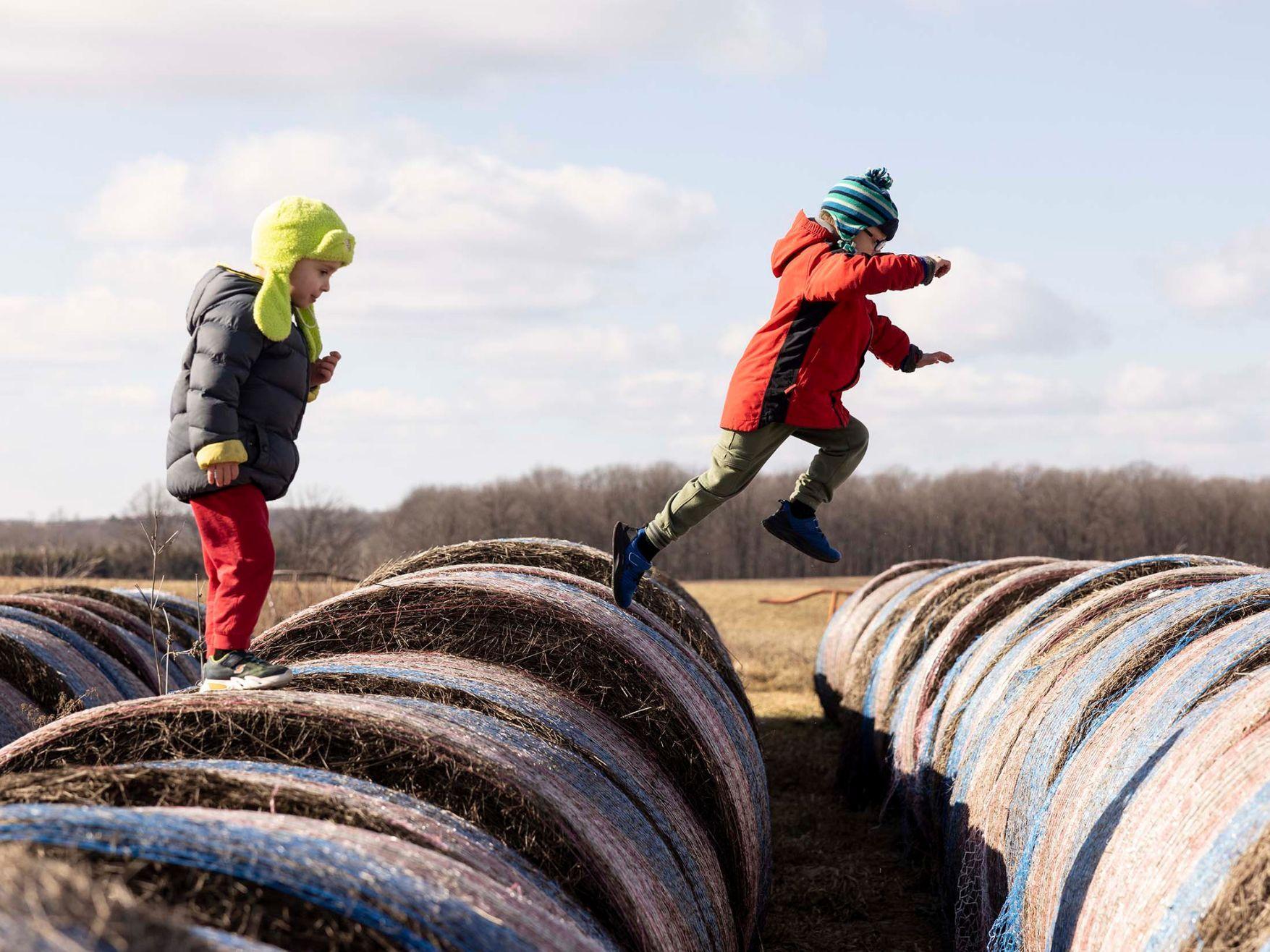
What is one of your favorite stories or memories of this past year?
Max: We took them up to Lake Superior in northern Wisconsin, and they wouldn't have had an opportunity to get up there. Our whole family went up and we went out on the lake, and went to an island and to a beach there. Olesia talks about their vacations they took twice a year. They went to Egypt, to the beach every year when they were in Ukraine. And you can tell she really misses that. So they just had a wonderful time on that vacation.
Bryce: Every year I make large bales of hay that are 4 feet long and 5 feet high, or vice versa. And I put them in long rows out behind the barn. So there will be maybe a half a dozen rows that are 20 bales long. And, that was one of the favorite things that those kids did all autumn, is to go out there behind the barn and race up and down and jump from one pile to the next and run across and fall off and climb back on. They just had a great time.
Max: Olesia and I share recipes. Sometimes I'll bake something and share it with her. Then she wants the recipe and vice versa. Bryce said we had two Christmas dinners, because I had invited them for Christmas dinner because we were going to be alone. Our children don't come till the next weekend.
And never did I think, I should say a date. And so they appeared on Dec. 24 at noon for their Christmas dinner, and we were planning to have them come on Dec. 25. But Olesia brought Ukrainian dishes to share. So we had a Ukrainian Christmas Eve dinner, and then they came back for Christmas with us. We still laugh about it. It was kind of a snafu, but it turned out to be really fun.
How is your relationship with Max and Bryce now that you have become more independent with life in the U.S.?
Olesia: Bryce and Max. They are so kind, good and welcoming people. We’re very close, and we feel like we’re spending time with family. We’re good friends, and they’re kind of like godparents to us. During the winter and cold we spend time playing cards in the evening, but I didn’t play cards with my parents.
How would you describe how the rest of Unity has reacted to having the Hnatiuks as new neighbors? Was there anything about how the community has welcomed them that was surprising or noteworthy for you?
Max: We've been overwhelmed with how people have accepted them, how they've offered help, money, clothing, toys, food. Someone offered them a car. I mean, it was just overwhelming support.
Bryce: Olesia likes to watch birds, they brought her a bag of sunflower seeds and bird feeders.
Max: We have Mennonite neighbors who have come in horse and buggy to meet them. And actually Olesia and Mykola go over there once a week and they get fresh milk, whole milk, and Olesia makes her own Ukrainian cheese. It's kind of like cottage cheese, but she uses that. She wants that fresh milk. And so they established a relationship with that family.
What are your hopes for the future?
Mykola: It’s hard to plan for the future, because our main hope was for the war to end, but that’s unknown when it’s going to end, how it’s going to end, and whether we’ll have anything to come back to. Right now, we are just happy that our children are safe and they're in a good country where they can learn and study and grow, in a calm environment. America is the type of country where you can live really good here, and especially if you build your own business. But to develop the business, you need time. And it's hard to start anything right now where we don't know if we need to leave in a year or not, or what is going on. So that's why it's very hard to plan for the future.
How has sponsorship changed you, and would you do this again?
Bryce: Would I do it again? Same circumstances. Absolutely. In a heartbeat.
Max: I was the one that was hesitant. He was the one that said to me, "We're going to do this. We have the house. We're going to find a way to bring a family here to safety." I was so impressed with the whole process, with Welcome.US and all the help, just like you do this the first week, this the second week. I mean. It took away all my worries really, just by having all that information. And then, of course, the way we could choose the family made a big difference, too.
How has this changed us? Well, we watch the news. We pay attention to what's happening all over the world. It's hard to put yourself in the place of those people, even if you try. But what's happened is this personal touch. I often will ask Olesia “What's happening in Lviv? “And she's telling these stories that you don't get on the news. And so I'm hearing how her extended family is doing and what's happening there. And I'm so grateful that they are here. I'm sad that they have to be away from their family, but so grateful that they aren't going through what other people are going through in the country. Would I sponsor again? Yes, I would do it again.
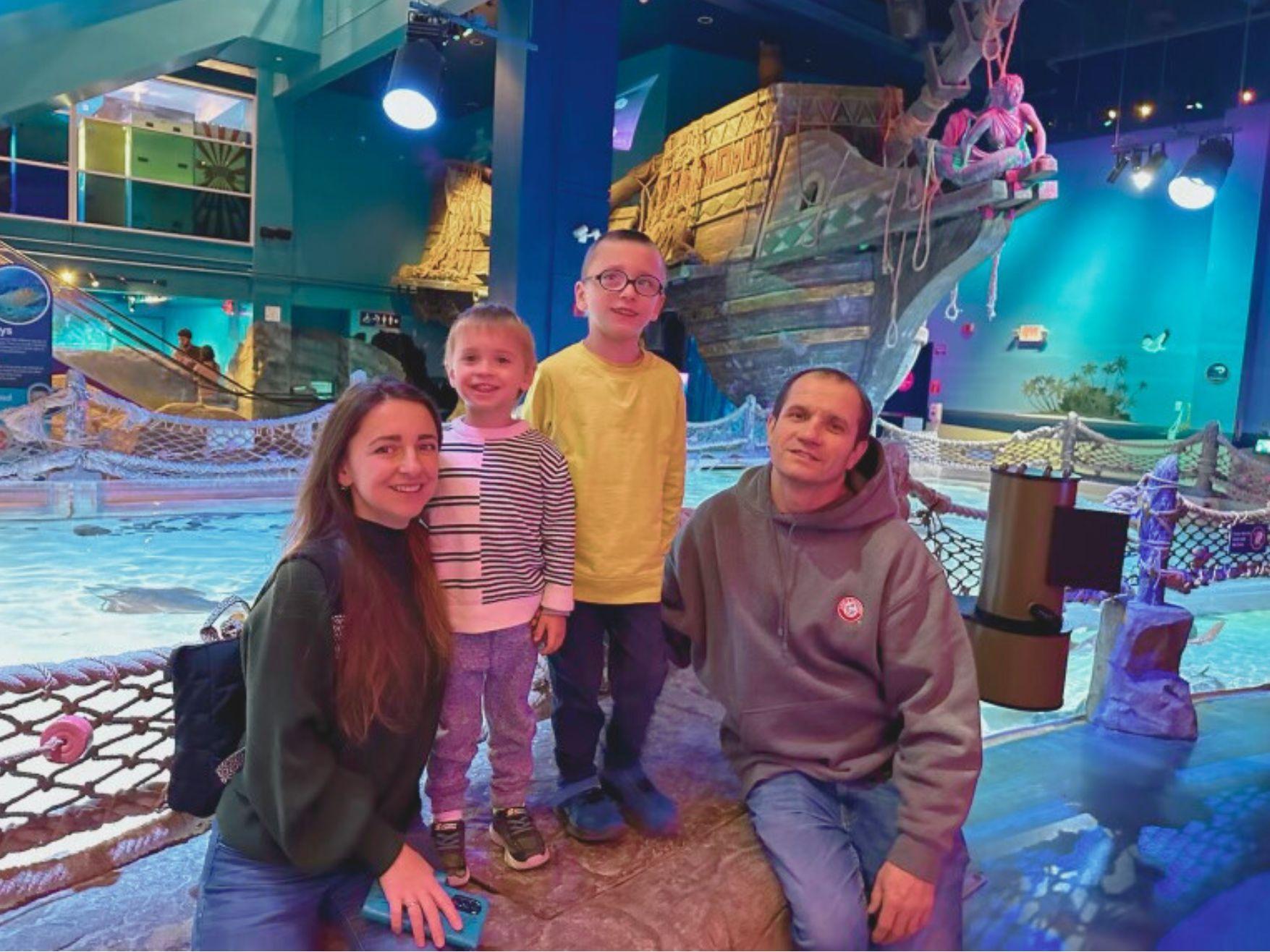
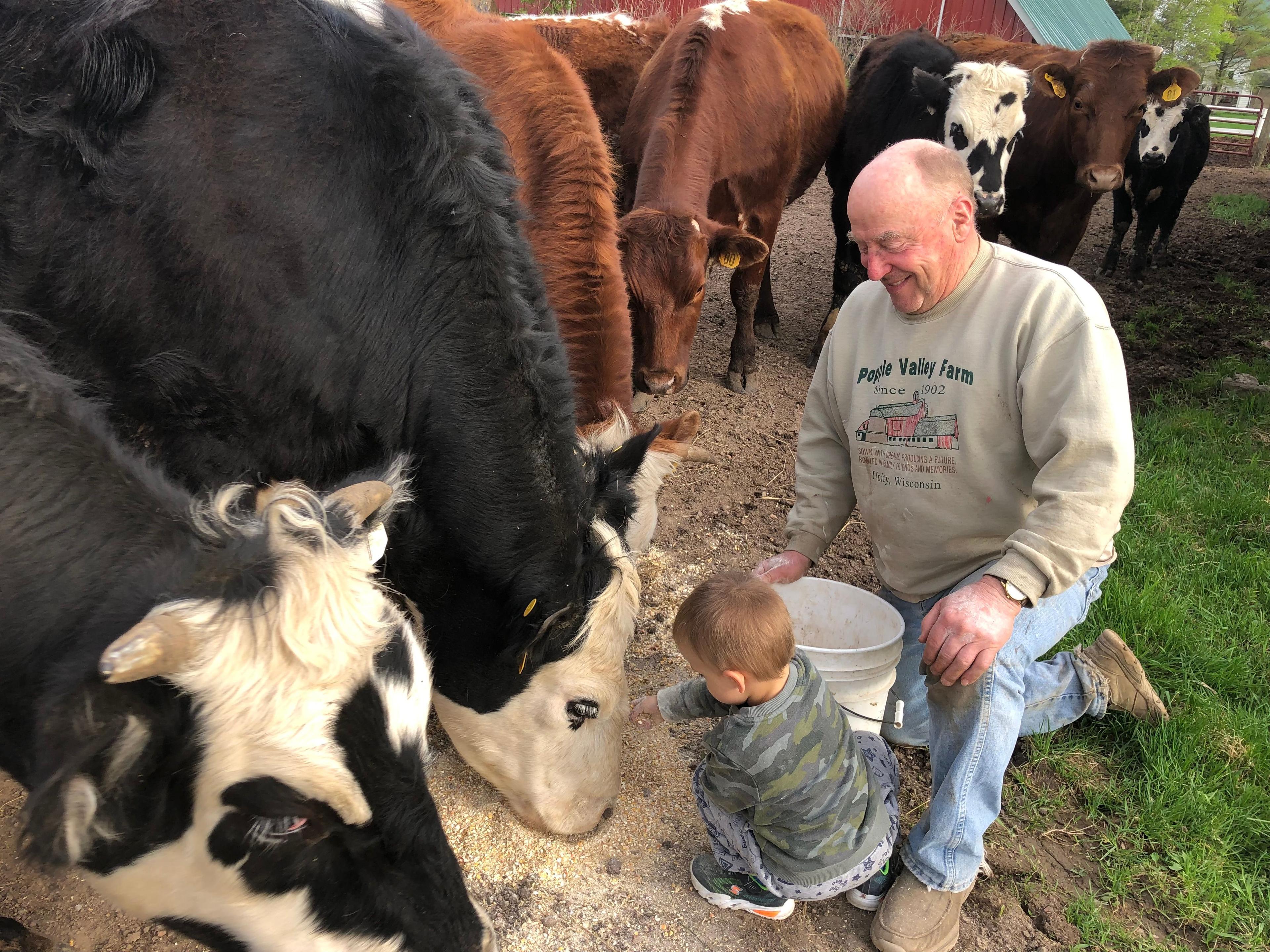
Why is it important for Americans to still consider sponsoring Ukrainians?
Mykola: Ukrainians are the same people as Americans, and they're being killed every day, right now in Ukraine. And, everything is taken from them: their lives, their livelihoods, everything that they had and their kids had is destroyed, daily. If anyone can help a Ukrainian family or somebody from Ukraine to survive and overcome these difficulties in these times, Ukrainians will be eternally grateful for their help. And there's a lot of people who need help in Ukraine because the war hasn’t ended. It's still going on. Every day there's more and more Ukrainians who need help.

Stories of Welcome
August 09, 2023
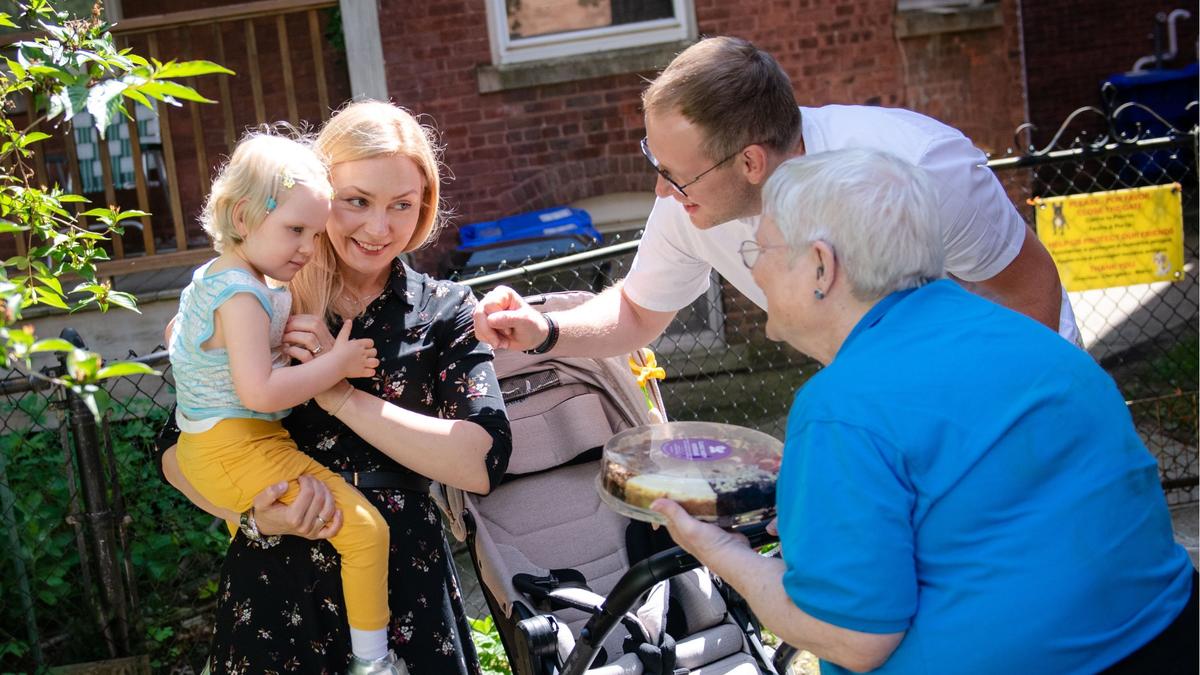
Stories of Welcome
October 05, 2023
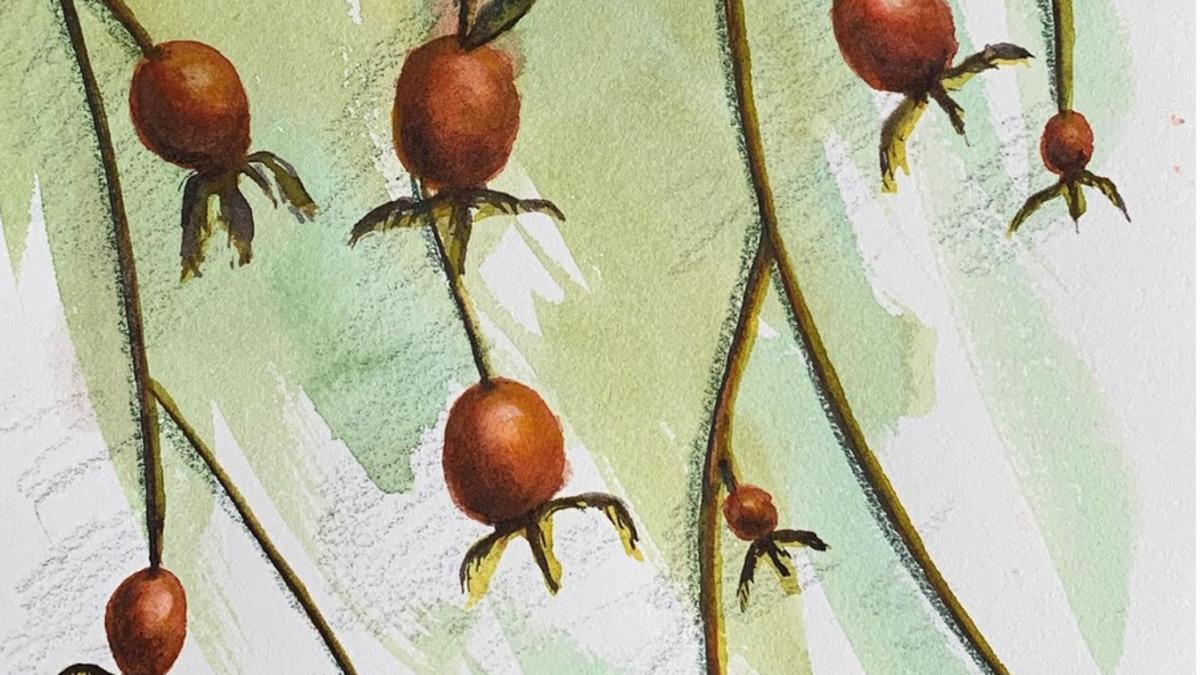
Stories of Welcome
August 01, 2023
Sign up for updates about Welcome.US, policy changes impacting newcomers and how you can get involved.
